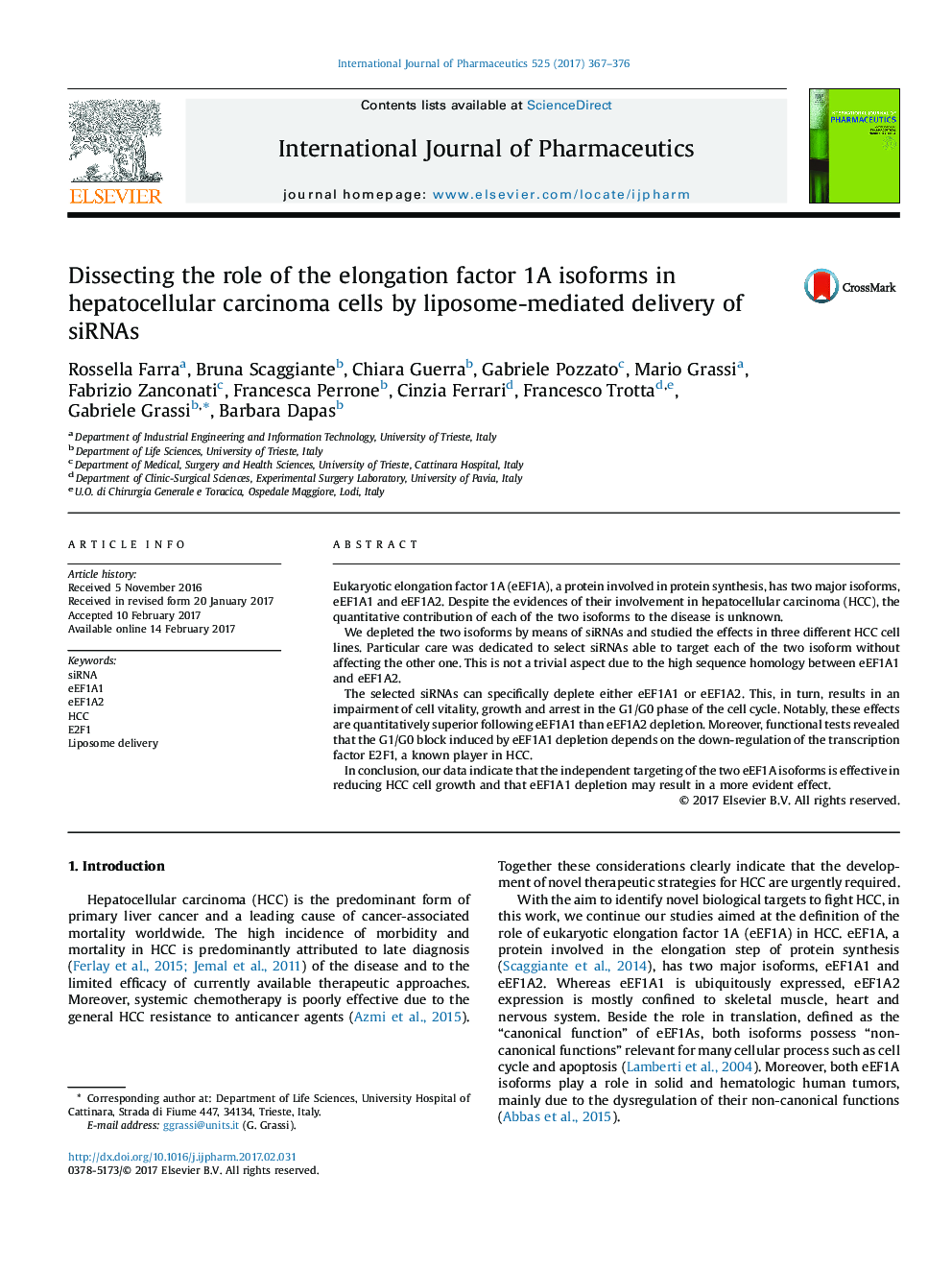| Article ID | Journal | Published Year | Pages | File Type |
|---|---|---|---|---|
| 5550362 | International Journal of Pharmaceutics | 2017 | 10 Pages |
Eukaryotic elongation factor 1A (eEF1A), a protein involved in protein synthesis, has two major isoforms, eEF1A1 and eEF1A2. Despite the evidences of their involvement in hepatocellular carcinoma (HCC), the quantitative contribution of each of the two isoforms to the disease is unknown.We depleted the two isoforms by means of siRNAs and studied the effects in three different HCC cell lines. Particular care was dedicated to select siRNAs able to target each of the two isoform without affecting the other one. This is not a trivial aspect due to the high sequence homology between eEF1A1 and eEF1A2.The selected siRNAs can specifically deplete either eEF1A1 or eEF1A2. This, in turn, results in an impairment of cell vitality, growth and arrest in the G1/G0 phase of the cell cycle. Notably, these effects are quantitatively superior following eEF1A1 than eEF1A2 depletion. Moreover, functional tests revealed that the G1/G0 block induced by eEF1A1 depletion depends on the down-regulation of the transcription factor E2F1, a known player in HCC.In conclusion, our data indicate that the independent targeting of the two eEF1A isoforms is effective in reducing HCC cell growth and that eEF1A1 depletion may result in a more evident effect.
Graphical abstractDownload high-res image (115KB)Download full-size image
